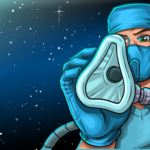Call: No call. Some weekends.
Bookmark Details
Brigham and Women's Hospital
GENERAL SUMMARY/OVERVIEW STATEMENT:
A Certified Registered Nurse Anesthetist (CRNA) is responsible for the pre-operative, intra-operative, and immediate
post-operative care of the patient requiring anesthesia for surgical, medical, therapeutic or diagnostic procedures. This
care includes, but is not limited to, pre-operative assessments, anesthetic care plans, assembly and care of specialized
equipment; application, insertion and interpretation of data from anesthetic monitors; airway management; delivery of
general, regional anesthesia, and monitored anesthetic care; induction, maintenance, and emergence of the patient;
care of the patient in the immediate post operative setting; and post-operative assessments in collaboration with a
physician member of the Department of Anesthesiology. These services are rendered in the main operating rooms, Labor and Delivery, and designated “Out of OR” anesthesia locations (i.e. Radiology, MRT, etc.) CRNAs also fulfill a
teaching function for the Student Registered Nurse Anesthetists that rotate to the BWH from Northeastern University for their clinical experience. Clinical research may be available as an adjunct for the CRNA who is interested in that area
of practice, depending on protocols available, but is not a department requirement nor is it usually sponsored by the anesthesia department. All CRNAs must comply with federal, state, hospital, and departmental guidelines as they pertain
to the delivery of anesthesia care at the Brigham and Women’s Hospital.
Clinical Responsibilities:
– Pre anesthesia assessment
– Requesting laboratory/diagnostic studies
– Pre anesthetic medication
– General anesthesia and adjuvant drugs
– Regional anesthesia placement and monitoring
– Sedation techniques
– Cardiopulmonary resuscitation management
– Invasive and noninvasive placement and monitoring
– Airway management techniques
– Mechanical ventilation/oxygen therapy
– Fluid, electrolyte, acid-base management
– Blood, blood products, plasma expanders
– Peripheral intravenous/arterial catheter placement
– Central venous catheter placement
– Pulmonary artery catheter placement
– Acute and chronic pain therapy
– Post anesthesia care/discharge
– Seeks physician direction based on patient condition
QUALIFICATIONS:
– State licensure as a registered professional nurse. Compliance with Massachusetts regulatory
requirements regulating advanced practice for nurse anesthesia
– Graduation from a program of Nurse Anesthesia education accredited by the National Board on Certification and
Recertification of Nurse Anesthetists (NBCRNA) or its predecessor
– Certification by the Council on Certification or recertification by the Council on Recertification or their respective predecessors
– Basic Life Support (BLS) and Advanced Cardiac Life Support (ACLS) certification
WORKING CONDITIONS:
– Anesthesia care is given in the main operating rooms of the BWH, or its affiliating institutions, as well as several designated “Out of OR” locations, which are, for example, Radiology, Cardiac Cath Lab, CT, MRI, MRT, Endoscopy, Angiography, among others. These locations are often geographically far from the main ORs.
– In these environments, work proceeds in an atmosphere that includes many forms of electrical, mechanical, gas driven, and radiation and laser emitting equipment. The environment can be warm, cold, dimly lit and crowded as well as spacious and well lit
SUPERVISORY RESPONSIBILITY:
– CRNAs may also be responsible for the safe care provided by, and education of, the Student Registered Nurse Anesthetist (SRNAs) that rotate to BWH for their clinical experience. CRNAs also provide airway management skill education for department sponsored programs for non-anesthesia physicians, medical students, and Emergency Medical Technicians (EMTs).
FISCAL RESPONSIBILITY:
None



